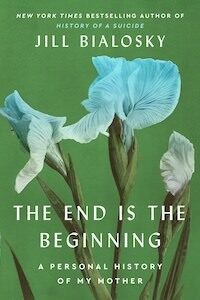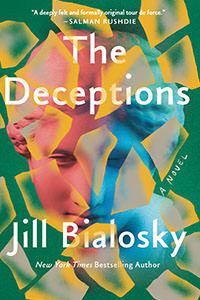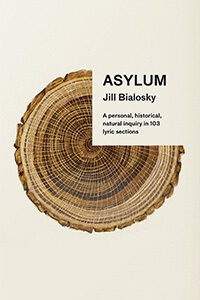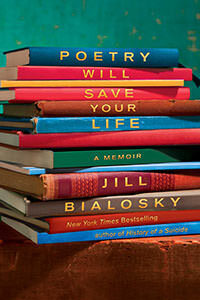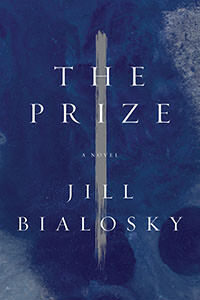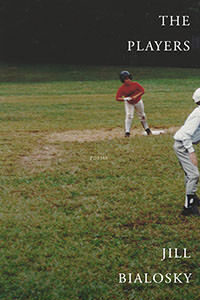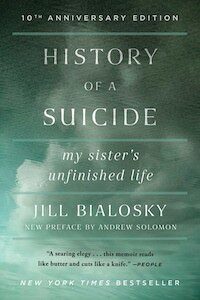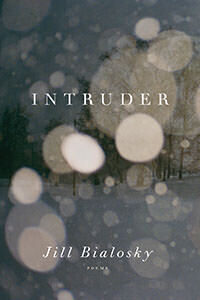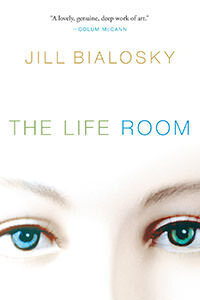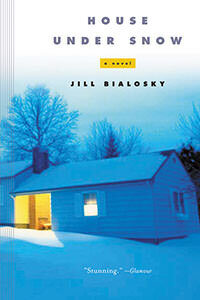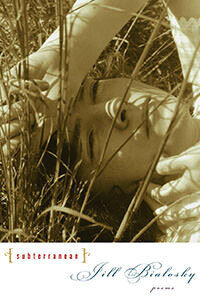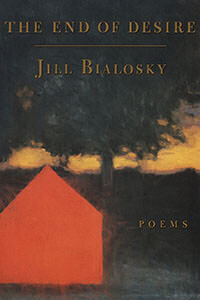Interviews with Jill Bialosky
Literary Hub, May 12, 2025
Priscilla Gilman Talks to Jill Bialosky About Her New Memoir, “The End is the Beginning”
Los Angeles Review of Books, May 7, 2025
Yvonne Conza interviews Jill Bialosky about her new book, “The End Is the Beginning: A Personal History of My Mother.”
BookBrowse
Jill Bialosky, the author of four poetry collections, discusses her first novel, The Prize
Chicago Review of Books, December 7, 2022
By Mandana Chaffa
First Draft podcast, September 19, 2022
First Draft: A Dialogue on Writing is a literary podcast produced and hosted by Mitzi Rapkin. Each week the podcast features an in-depth interview with a fiction, non-fiction, essay, or poetry writer. The show is equal parts investigation into the craft of writing and conversation about the topics of an author’s work.
Lynn and Jill examine Jill's latest novel, The Deceptions, to take a deep dive into a variety of issues, such as personal power, shame, and the complicated ways patriarchal systems affect feminine sensibilities within the creative process, and inform their receptions in the world.
BOMB, Sep 16, 2022
Obsession and Urgency: Jill Bialosky Interviewed by Ruth Madievsky
A narrator who looks for answers in the art of the ancients.
by DAVID BAKER, November 25, 2020
One of the book’s primary subjects has to do with politics, with the relation of the lyric poem to cultural engagement. It’s striking that Asylum entered the world at the time of our pandemic, the horrible global contagion of COVID-19. You had no clue, of course, that would be the case; yet in these poems—these “lyric sections” as you call them—we find your sustained attention to trauma, environmental degradation (of nature but also of the urban), and both personal and collective peril. But you also propose, in a kind of answering insistence, our mindful attention to beauty, affection, and artful expression. In what ways now do you see Asylum speaking to this historical moment?
Asylum began as an inquiry. I was interested in thinking about the evolution of a poet, how she comes to language as an act of witness, as a vehicle of recording experience recalled through memory which is not fixed that can only manifest in poetry. Parts of the sequence concerns my days in graduate school—with the questions, the doubts, of devoting a life to a practice, as juxtaposed to a more practical livelihood. You hear this in:
Publishers Weekly Poetry, July 1, 2020
M: Asylum is a “personal, historical, natural inquiry in 103 lyric sections.” Can you talk a bit about your writing process throughout the time you shaped this book?
J: This book was a lesson in process. It kept unfolding, one thread or trope of the poem circled back to another or prompted a new section. I began to see patterns, themes, taking hold, and I went on the journey along with the evolution of the poem.
The book began in 2016 when our world seemed to suddenly take a drastic turn, and I wanted the poem to speak to this moment of fear and displacement. The lyric poem didn’t feel like enough of a container, and I wanted to take more formal risks. My concern about how the human spirit would prevail, could it, with so much violence, racial discord, upheaval and loss was a question that hung over the life of the poem, forcing it in areas of exploration.
Narrative, Spring 2020
1. Who is your favorite character in fiction; your fave character in life?
Isabel Archer in Henry James’s Portrait of a Lady. I’ve read this novel at various stages of my life and I feel as if I know Isabel. She’s so human. I love her complexity, her pathos, her inner life and moral conscious, her love of art and literature, her kindness, seeking to do the right thing, even as it jeopardizes her own chances for happiness.
Poetry Society of American, October 2017
A poem can be a deeply personal document that also possesses an important social purpose and wide relevance. Poetry Will Save Your Life is unique in recent publishing—a genuine hybrid, part literary discussion, part memoir, written for a general audience.
The Millions, August 17, 2017
Jill Bialosky author of Poetry Will Save Your Life, and Matthew Zapruder, author of Why Poetry, discuss the state of poetry, their own connection to the art, and their shared experiences as poets and editors.
Salon, September 18, 2015
“Any wisdom or acquired knowledge in a work of fiction, a poem or a work of art comes from experience, and being sharply attuned. At the heart, I am a listener and a thinker—an introvert with curiosity. The joy of writing a novel, of making any sort of art, is watching the way in which art can reflect or mirror reality even in abstraction.”
Kenyon Review, Spring 2013
“If the persistence of memory keeps the memoirist and poet in its stronghold to create an authentic work of art, great personal risk must also be at stake to give the work its sense of urgency. Personal risk involves employing dangerous subject matter—what you dare say! The best poems and memoir are born out of risk.”
“It’s incredibly sustaining,” Bialosky told me recently, over coffee on an early fall morning in Manhattan, “to carry on a full-time job and also be a writer. My books build over time. I sometimes work on two or three projects at once, different forms, and this takes the pressure off each project.”
“Fiction and poetry are specific art forms — they require different forms of concentration. In a poem, the concentration is on the line, on word and sound and phrasing and rhythm. Fiction is more free-flowing in its attempt to bring forth a larger narrative, though after I have a draft I look at the language and parts of the narrative fairly closely. I feel lucky to be able to write poetry and prose, because they invigorate each other even though they require different forms of concentration and craft.”
“I want to be the quiet insular writer making my own art and disregarding how it will be perceived and what I can and cannot do to make it so, but I know that ambition, and the desire to be read, partly drives the enterprise. I wanted The Prize to struggle with this conundrum.”
“My hope might be that this book will help open the conversation about suicide and to remove this veil of shame. It's as if the suicide has to pay again for her actions by being silenced. I do think that in our culture, there is difficulty in understanding suicide. I hope that my book will allow people to understand that this act is something that could happen to anyone, and that lot of different circumstances are at play.”
New York Times, September 14, 2015
The Artistry in Jill Bialosky’s Pastry Brush.
Huffinton Post, March 6, 2015
The Players represents an under-appreciated but particularly relatable strain of poetry: The poetry of our daily lives. In its pages, we see our own childhoods, daily domestic experiences, and familial dramas.
The Guardian, February 2, 2015
Jill Bialosky’s younger sister Kim killed herself in 1990. She talks to Joanna Moorhead about trying to make sense of what happened.
Vulture, March 10, 2011
History of a Suicide Author Jill Bialosky on the Struggle to Write a Non-Depressing Grief Memoir.
Interview with Los Angeles Times, February 20, 2011
Finding words to talk about the hush-hush topic of suicide.
Publishers Weekly, December 20, 2010
In History of a Suicide, Norton editor Jill Bialosky reflects on her sister's suicide.
Identity Theory, October 28, 2002
Robert Birnbaum interviews Jill Bialosky: "In baseball terminology you would be referred to as a triple threat: a poet, an editor, and now, a novelist. Why did it take you so long to write a novel?"
